OU Sivhuoch
Former Research Fellow
Email : NA

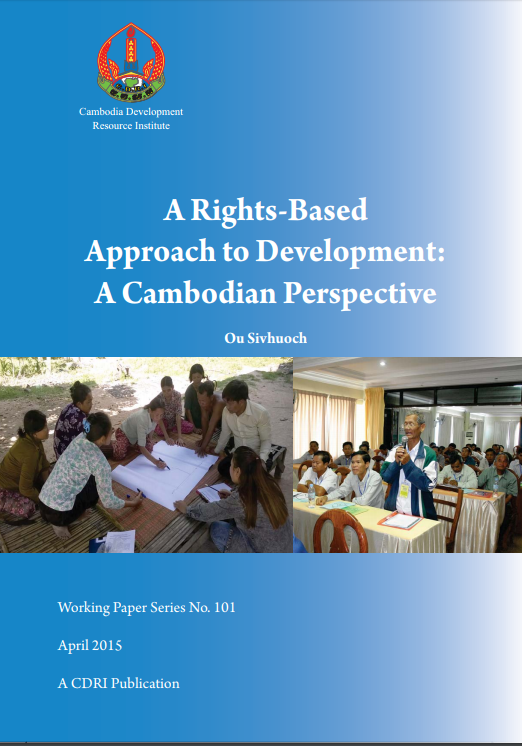
The rights-based approach (RBA) to development emerged as a new and relatively authoritative paradigm, starting from the late 1990s. At its core is the argument that human rights and development converge and, unless the socio-economic rights of the poor are attained, poverty cannot be alleviated. Its approach is to shift NGOs’ strategy from providi...
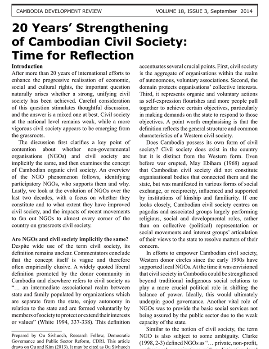
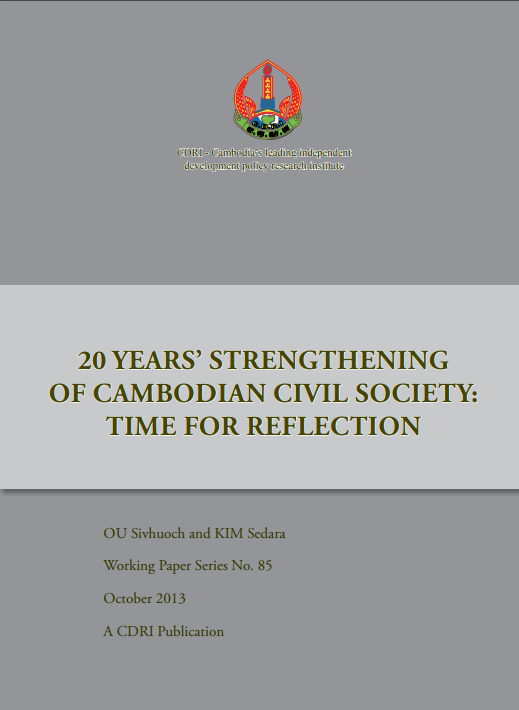
In the 1980s and 1990s a large number of NGOs emerged in Cambodia, primarily in response to donors’ agendas on strengthening civil society to curb repressive developing country governments and support a broad democratisation process. Over the last 20 years, donor money has been concentrated on funding a small group of NGOs, mostly located in the co...
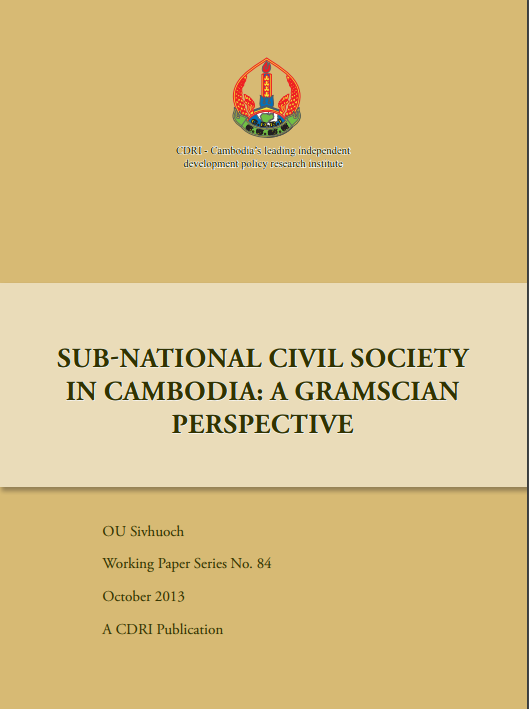
Several authors (particularly Laundau 2008; Henke 2011) label Cambodian national civil society as a sphere that is neither apolitical nor autonomous, but influenced or co-opted by and blurred with the state. They posit that a Gramscian perspective is relevant to interpreting civil society in the country. This article suggests that the application o...

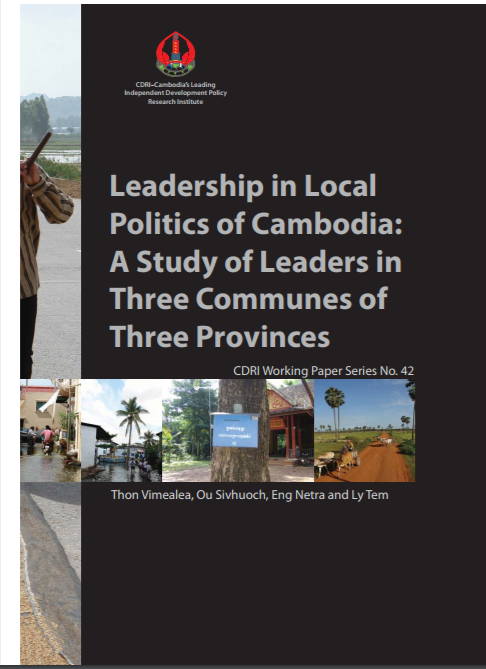
Using the state-society gap as its assumption and point of departure, the study seeks to identify different kinds of local leaders (including women leaders) and their associated characteristics and elements of legitimacy in order to see whether and how they can help bridge this gap, in the midst of the decentralisation and deconcentration refor...

